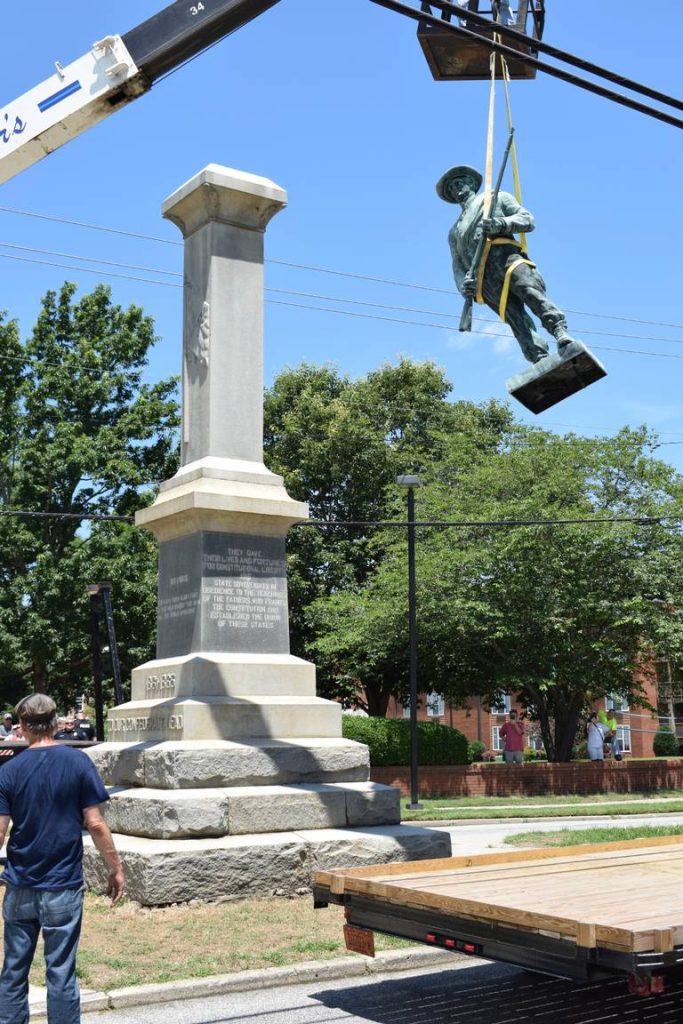5 States that have Confederate Memorials in Danger
The legacy of the Confederacy continues to elicit strong reactions in the United States, as communities grapple with how to address memorials honoring figures and events from the Civil War era. As discussions surrounding race, history, and representation have evolved, many states have found their Confederate monuments and memorials under scrutiny. This article explores five states where these monuments face uncertainty, delving into the societal and political contexts that influence their fates.
Unraveling the Past: 5 States Where Confederate Memorials Face Uncertainty
1. Virginia
Virginia is home to numerous Confederate memorials, including the prominent statue of General Robert E. Lee that was situated in Richmond. Following a series of protests and calls for racial justice, the state government announced plans to remove this controversial statue. The decision sparked debates over historical representation and the collective memory of the Civil War.
2. North Carolina
With a rich history linked to the Confederacy, North Carolina has seen pushback against its Confederate statues in places like Durham and Chapel Hill. Activists have led campaigns to remove these symbols, arguing that they perpetuate a narrative that glorifies a painful past. Legislative hurdles, however, have complicated the removal processes, leading to ongoing tension between state authorities and local communities.
3. Texas
Texas boasts one of the largest collections of Confederate memorials in the nation, with prominent examples found in cities like Austin and Dallas. The state’s historical ties to the Confederacy make it a focal point for debates on memorials. Recently, some local governments have sought to relocate or alter these monuments, but they face legal constraints due to state laws protecting these symbols.
4. Mississippi
Mississippi’s Confederate monuments are deeply ingrained in its historical framework. The state has seen protests aimed at removing memorials, such as the Confederate Soldier statue in the state capitol. Local lawmakers have proposed bills to address these concerns, reflecting a growing awareness of the need for inclusive historical narratives.
5. Alabama
In Alabama, Confederate memorials have sparked impassioned debates in neighborhoods and state houses alike. While some residents advocate for their removal, citing the need to honor all aspects of the state’s history, others defend these monuments as vital parts of their heritage. This clash has led to a patchwork of responses across different municipalities.
Standing on Shaky Ground: The Future of Confederate Monuments in America
The future of Confederate memorials across the United States is uncertain and fraught with complexity. Movements to remove or repurpose these monuments are gaining momentum, as communities reevaluate their significance in today’s context. Legal battles and public protests illustrate the deep divides in how history is interpreted and who gets to tell those stories.
Moreover, the issue is compounded by legislation in various states that restricts local governments’ ability to remove or alter Confederate statues. As a result, many memorials stand in limbo, fueling tensions between those who wish to preserve history and those who aim to promote inclusive narratives. This ongoing struggle suggests that the fate of these monuments may not be decided uniformly, but rather through localized battles.
As public attitudes shift and historical interpretations evolve, it is plausible that many Confederate memorials may be repurposed or relocated. Some communities are exploring options such as contextualizing the monuments with accompanying educational materials or incorporating them into broader discussions of civil rights and reconciliation. The ultimate outcome remains to be seen, as the dialogue surrounding these monuments continues to unfold.
Conclusion
The discussion around Confederate memorials is emblematic of larger issues concerning race, history, and identity in America. As states grapple with the future of these controversial monuments, they help to illuminate the diverse perspectives that shape American memory. Whether through removal, reinterpretation, or preservation, how communities choose to address the legacy of the Confederacy will undoubtedly influence the narrative for generations to come.

